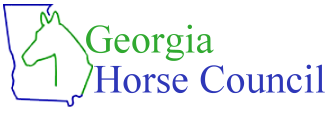American Horse Publications conducted its second online nationwide equine industry survey from March 5 through May 20, 2012, and has just made the full results available to the general public.
Sponsors for the 2012 Equine Industry Survey included the Kentucky Equine Research, Merck Animal Health, and Pfizer Animal Health. These companies–and the people behind the companies–are supporters of the horse industry because of their love of the horse, not just because it’s their business.
The objectives of second survey were to gauge participation trends and management practices in the U.S. equine industry, to identify critical issues facing the equine industry as perceived by those who own or manage horses, and to better understand issues pertaining to horse health and nutrition.
The survey was limited to men and women, 18 years of age and older, who currently own or manage at least one horse and live in the United States. This study was anonymous, meaning no one, not even members of the research team, are able to associate survey information with responses.
Upon the conclusion of the survey, 11,320 responses were collected. After removing duplicates, respondents from outside the U.S., and non-horse owners or managers, there were 10,539 usable responses. The results cover the six main sections of the survey: demographics, horse ownership, horsekeeping costs, issues facing the equine industry, horse nutrition, and horse health care.
The survey sample is reasonably representative of the equine industry as a whole based on results from previous surveys. The 45-54 and 55-64 years age groups are most highly represented, with each accounting for 26.2% of the respondents. Overall, 61.2% of respondents are age 45+ and 90.8% of the respondents are female.
The survey focused on horse ownership as well as the ways in which respondents are involved with the horse industry. More than 92% of the respondents indicated that they are horse owners, and 20.9% identified themselves as barn/farm managers. Just fewer than 50% indicated that they ride for pleasure and 34.9% indicated that they ride competitively.
A variety of issues pose challenges to the equine industry in the present and going forward. One objective of the current study was to gain a better understanding of how those who own and/or manage horses perceive the various challenges; to this end, participants were asked to identify the top three issues facing the equine industry.
Nearly 56% of the respondents indicate that the problem of unwanted horses (and what to do with them) is one of the top three issues. The next two concerns were the cost of horsekeeping (47.1%), and overbreeding (37.3%).
Jill Stowe, PhD, provided consultation and data analysis services for data collection and analysis to the AHP. Stowe is an associate professor of Agricultural Economics at the University of Kentucky.
“The equine industry continues to face many challenges,” stated Stowe, “But it appears that the industry is beginning to recover from the great recession of 2008, as indicated by the percentage of respondents participating in the industry, either through owning/managing horses or competing with them, at the same or greater levels than two years ago.”
“We are thrilled with the cooperation of our members and the industry in participating in this survey,” said Christine W. Brune, AHP executive director. “This was an important project for American Horse Publications, and demonstrated that our association can provide vital statistics for the equine industry through the power of the media.”
The complete results of this survey are available at the AHP website under “Resources.” Excerpts from this study must be referenced as 2012 AHP Equine Industry Survey sponsored by Kentucky Equine Research, Merck Animal Health, and Pfizer Animal Health.
